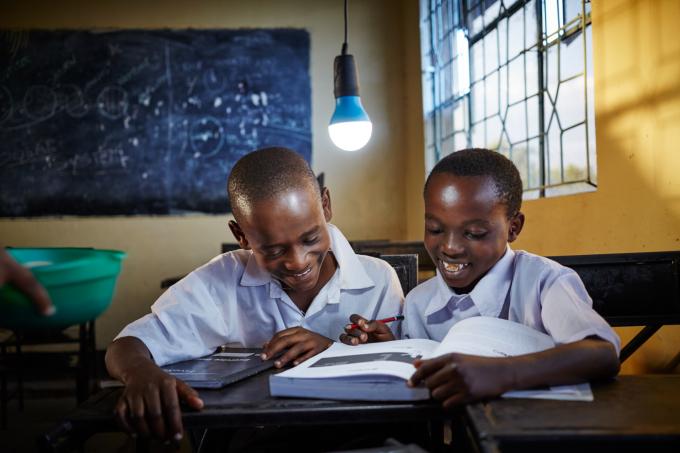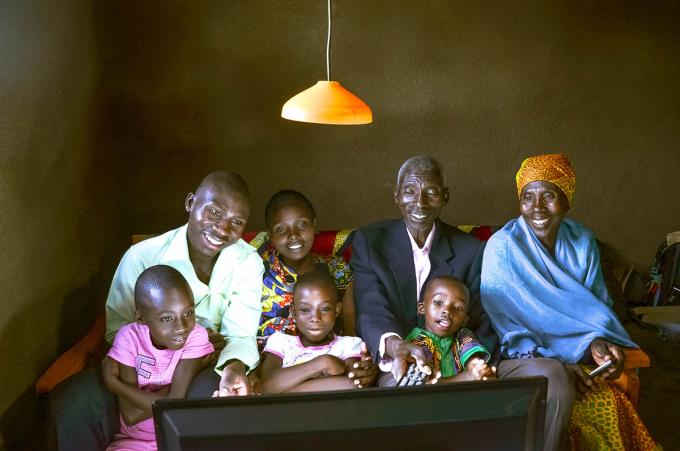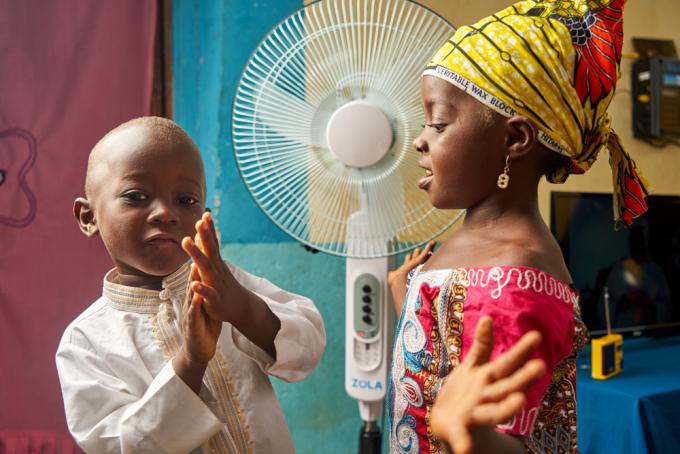Smart power solutions company benefits from aligned impact, donor and investor interests
Zola Electric is an off-grid renewable energy company that has the potential to transform how consumers—business and residential alike—get their energy across Africa.

Tell us about the company’s vision.
Worldwide, more than 2.2 billion people and millions of businesses do not have access to clean, affordable or reliable power. One billion of these people live in Africa alone. In emerging markets across the globe, urban areas are rapidly expanding. Weak grid infrastructure is struggling to meet demand for electricity. Unreliable and intermittent power supply undermines productivity and development.
To be part of the solution to this “access to energy” problem, ZOLA Electric pioneered ‘Pay As You Go’ finance to deliver off-grid electricity in Africa. ZOLA’s founders spent years living and working in Tanzania to develop a practical understanding of the African energy landscape. We applied these learnings to develop products that meet the specific needs of everyday Africans. The fintech innovations of “Pay As You Go” (PAYGO) finance and mobile money, combined with the falling cost of solar panels and Li-Ion batteries, has democratised power and made distributed renewable energy affordable and accessible for our customers. ZOLA’s mission has evolved from off-grid solar to smart storage systems designed to deliver clean and reliable power for every energy demand.

Fintech has been important in making your products accessible to your customers. How do you stay on top of the next big financial innovation that could further help you to “democratise power”?
Emergence of FinTech in Africa is a prelude to the transformation in payments, lending and personal finance. FinTech is enabling the entire value chain of traditional financial institutions to establish better connections with customers and to provide new market offerings. In East Africa, we found a solution in the wide-spread mobile money payment system, while in Nigeria for example, that function has not been full developed yet. Therefore, in Nigeria we work closely with third parties to stay on top of the latest developments. We see numerous start-ups cutting across functions, predominantly in payments and lending.
Is Zola Electric capable of reaching people in rural communities or only those in urban centres?
Through product innovation and scale, ZOLA Electric now delivers clean, affordable, reliable energy across the energy spectrum—from commercial enterprise and urban residential applications with intensive energy demands and weak grid connections to remote off-grid areas with no grid connection. Most of our customers are part of remote, rural communities; however, we see a large growth potential also in the (peri) urban areas. ZOLA’s expansion to Nigeria will address the energy reliability challenges of urban areas, specifically the unreliability of power supply from the grid and the wide-scale reliance on harmful diesel generators.

What makes Zola Electric different from some of the other renewable energy start-ups in Africa?
We focus on product innovation and scale, and our new product line, Infinity, is designed to meet a wide range of energy demands. These power systems are scalable and built for purpose. We use smart technology to autonomously manage multiple power sources, optimise efficiency and minimise energy costs. The systems have a unique ‘interoperable’ capability to work with the grid and solar, and their modular design allows users to simply add expansion storage whenever their power needs grow. We also ensure they are rugged, durable and guaranteed to last.
Tell us a bit about how your company is structured and how you are financed.
ZOLA is a multinational business with operations in Tanzania, Rwanda, Ivory Coast, Ghana and Nigeria. Investors are backing ZOLA because they recognise that distributed renewable energy and cleantech innovations will democratise the energy supply model. ZOLA has investors like Tesla, General Electric, EDF and Helios. ZOLA has raised more than $250 million in funding from multiple sources.
How has this evolved since your company was originally formed?
Our company was founded with a grant from American family offices (FOS). Once the business was moving and we could show initial successes, other (impact) investors joined in, allowing ZOLA’s business to evolve from an off-grid solar company mainly serving the rural African communities to a smart storage systems company designed to deliver reliable, 24-hour power for anyone, anywhere.
As you know, there is a growing movement of impact investing and innovative financing tools being used to support development projects by using donor and philanthropic funding to unlock private investment. Has Zola been positively impacted by these trends?
Definitely, Zola Electric has experienced the support of many donors and impact investors over the past years through several different tools. These financial tools, in combination with a sound business plan, have unlocked the private investments that were required to build the company.
We are in a luxury position because our business goals are 100% aligned with our desired impact; the more systems we sell, the more positive impact we have. We reach out to funding partners that endorse our development objectives, including our policies on recycling, customer protection, and employee rights, for example. We also understand that (private) investors would like a reasonable return on their investment. Our philantropic donors support us so that we can build a company that is financially strong enough to eventually continue without new grants.
This means that the interest of our donors and our private investors are very similar.
What advice do you have for other entrepreneurs who are building businesses that tackle social and environmental problems like Zola Electric?
We believe that social and/or environmental impact must go hand in hand with healthy financial performance for a company to be sustainable in the long term. If you have a business plan that combines these, and you add some creativity, innovation power and disciplined execution, you will travel far.
Is there anything you would still like to add?
We cannot stress enough the impact of access to clean, reliable energy as it will will unleash the economic potential of businesses and communities worldwide and significantly improve health, education, financial inclusion, women’s empowerment and environmental outcomes.

